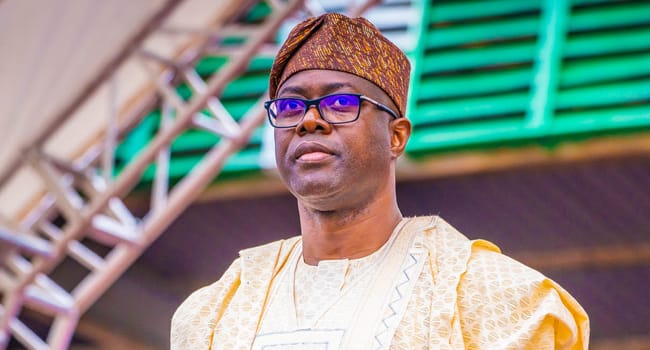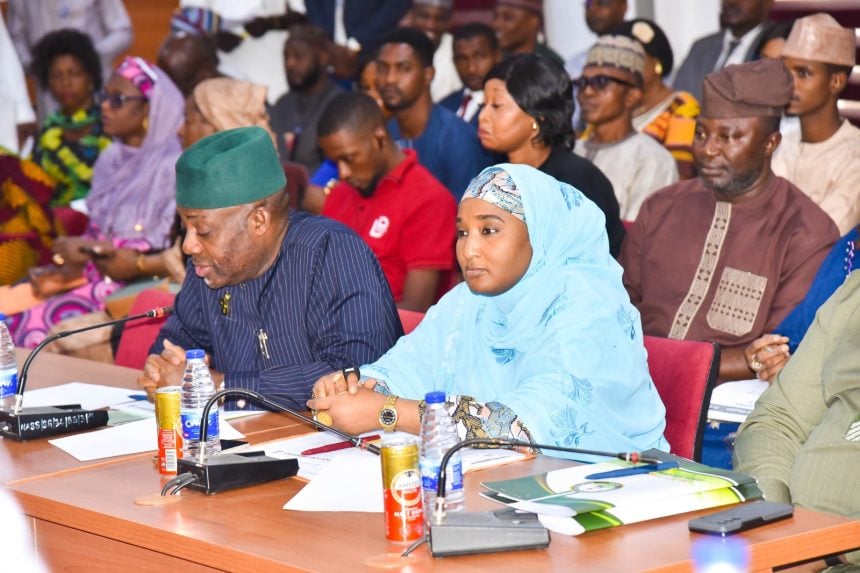Governor Seyi Makinde’s administration in Oyo State has continued to receive widespread commendation for its remarkable investment in education, especially through the implementation of a robust free education policy that has reshaped the state’s academic landscape. The policy, which aims to make education accessible to every child regardless of financial background, has not only restored hope to thousands of families but has also become a model of effective governance in Nigeria’s education sector.
Recently, Dr. Oladunmbo Savage, a retired principal of the prestigious St. Anne’s School, Molete, Ibadan, joined a growing number of voices praising Governor Makinde for his dedication to youth empowerment, timely salary payments, and overall improvement in the education system.
Makinde’s Free Education Policy: A Game Changer in Oyo State
Since assuming office, Governor Seyi Makinde has prioritized education as a core pillar of his administration’s development agenda. His free education policy, introduced to eliminate financial barriers for schoolchildren, covers tuition-free learning at public primary and secondary schools across the state.
The initiative also includes provisions for instructional materials, improved infrastructure, and incentives that encourage school enrolment and retention. This approach has significantly reduced the number of out-of-school children while boosting literacy and enrollment rates in urban and rural communities.
Dr. Savage described the program as a “revolutionary step towards breaking the cycle of poverty through education.” She noted that the governor’s consistent support for the education sector had restored dignity to public schooling and reawakened parents’ confidence in government-owned institutions.
Teachers, Parents, and Students Reap the Benefits
A key component of Makinde’s education reform is the prompt and regular payment of salaries, pensions, and allowances to teachers and civil servants. This measure has revitalized morale within the teaching workforce, leading to better productivity and commitment to duty.
According to education experts, the policy has not only improved teacher welfare but has also attracted qualified educators to the state’s public schools. Parents, too, have expressed relief, noting that the removal of school fees has allowed them to channel resources into other pressing family needs.
Many students who had previously dropped out due to financial challenges are now back in classrooms, thanks to the governor’s initiative. In several communities, local leaders have confirmed a visible rise in school attendance and overall student engagement.
Dr. Savage’s Commendation and Contributions
At an event held to honour Dr. Oladunmbo Savage for her 35 years of service to education and public development, she used the occasion to laud the Makinde administration’s vision for sustainable education.
Dr. Savage praised the governor’s leadership style, describing it as people-centered and development-driven. She emphasized that the prompt payment of teachers’ salaries and retirees’ pensions under Makinde’s watch had improved the welfare of public servants, many of whom had previously endured years of neglect.
She further urged other state governors to emulate Makinde’s example by investing in education as a long-term solution to unemployment, insecurity, and underdevelopment.
Oyo State as a Model for Educational Excellence
Observers have described Oyo State’s education policy as one of the most impactful among Nigerian states in recent years. Beyond free education, the administration has invested in renovating school structures, providing teaching aids, and strengthening teacher training programs.
The government has also implemented school monitoring systems to ensure accountability, discipline, and performance evaluation across public schools. Stakeholders believe these efforts have positioned Oyo State as a model for educational governance in the Southwest and beyond.
Public Reaction and Wider Impact
Across social media and community platforms, residents have continued to commend Governor Makinde for prioritizing education in his developmental agenda. Many parents have expressed joy that their children can now attend school without the burden of financial stress.
Teachers’ unions and civil society groups have also lauded the administration for creating an enabling environment for effective teaching and learning. They point out that consistent salary payments and the rehabilitation of public schools have improved both teacher satisfaction and student outcomes.
Economic analysts have linked the state’s rising literacy rate to improved productivity and human capital development, predicting that Oyo could soon emerge as one of Nigeria’s educational powerhouses if the current momentum is sustained.
Challenges and the Road Ahead
While the achievements are commendable, education experts have advised that the state must maintain strict oversight to ensure that the quality of education matches the accessibility gains. There are calls for increased investment in digital learning tools, classroom expansion, and the integration of vocational training into the curriculum to prepare students for a technology-driven future.
Governor Makinde’s administration, on its part, has reaffirmed its commitment to building a balanced education system that combines academic excellence with skill acquisition and innovation.



